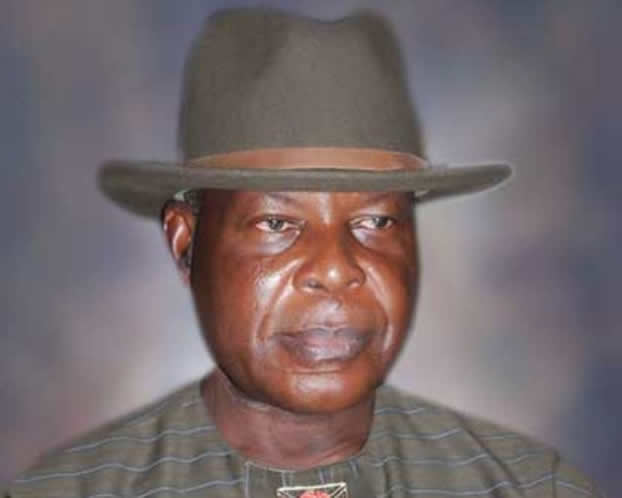Why Buhari Declines Assent To Electoral Act Amendment Bill – Presidency
The rejection of the Electoral Amendment Bill according to the Senior Special Assistant to the President on National Assembly Matters, Senator Ita Enang was communicated to the National Assembly on August 30.
This is as the President has also withheld his assent on seven other bills including the Advance Fee Fraud and Other Related Offences (Amendment) Bill, 2018 and the Nigerian Maritime Administration and Safety Agency (Amendment) Bill, 2017.
Recall that President Buhari had last week rejected to sign the Petroleum Industry Governance Bill, PIGB, over alleged constitutional conflict.
Briefing State House correspondents at the Presidential Villa, Abuja, Monday, Senator Enang said that the development may not in any way affect the 2019 general elections as the observed draft matters could also be addressed by the National Assembly in few weeks time.
In the statement he read, titled, “Presidential decision to decline assent to Electoral (Amendment) Bill, 2018, Enang noted that the areas of conflict that led to the President’s rejection of appending his signature to bill were on Sections 31, 34, 85 (1) among others.
He said, “His Excellency, President Muhammadu Buhari, has by communication dated August 30, 2018, to the Senate and the House of Representatives declined Assent to the Electoral (Amendment) Bill, 2018.
“I pray for leave, that in view of public interest, the fact of the National Assembly vacation, the imperative to avoid speculation and misinformation, that I give just a few of the rationale by Mr. President.
‘’Mr. President is declining assent to the Electoral Amendment Bill due to some drafting issues that remain unaddressed following the prior revisions to the Bill.’’
Mr. President invites the Senate and House of Representatives to address these issues as quickly as possible so that he may grant President Assent to the Electoral Amendment Bill.
“A few of the outstanding issues are: ‘’There is a cross referencing error in the proposed amendment to Section 18 of the Bill. The appropriate amendment is to substitute the existing sub-section (2) with the proposed subsection (1A), while the proposed sub-section (1B) is the new sub-section (2A).
‘’The proposed amendment to include a new Section 87 (14) which stipulates a specific period within which political party primaries are required to be held has the unintended consequence of leaving INEC with only 9 days to collate and compile lists of candidates and political parties as well manage the primaries of 91 political parties for the various elections.
“This is because the Electoral Amendment Bill does not amend sections 31, 34 and 85 which stipulates times for the submission of lists of candidates, publication of lists of candidates and notice of convention, congresses for nominating candidates for elections.’’ Continuing, he said, “For clarity, may I provide some details of the provisions referenced. Clause 87 (14) states ‘’The dates for the primaries shall not be earlier than 120 days and not later than 90 days before the date of elections to the offices. The Electoral Act 2010 referred to herein states; in Section 31: Section 31:
‘’That every Political Party shall not later than 60 days before the date appointed for a general election submit to the Commission the list of candidates the party proposes to sponsor at the elections. Section 34: ‘’That the Commission shall at least 30 days before the day of the election publish a statement of the full names and addresses of all candidates standing nominated. Section 85 (1)
“That a Political Party shall give the Commission at least Twenty-one days’ notice of any convention, congress etc., for electing members of its executive committees or nominating candidates for any of the elective offices.’’
“For the avoidance of doubt, neither the Constitution nor any written law allows a President or a Governor to whom a Bill is forwarded by the Legislature to edit, correct, amend or in any manner alter the provisions of any such Bill to reflect appropriate intent before Assenting to same.
He is to assent in the manner it is or to withhold assent.”
The Presidential liaison officer to the National Assembly also said that the President has communicated to the Legislature on seven bills transmitted to him for his assent.
The Bills are the National Agricultural Seeds Council Bill, 2018, the Advance Fee Fraud and Other Related Offences (Amendment) Bill, 2017, the Chartered Institute of Entrepreneurship (Establishment) Bill, 2018, and the Subsidiary Legislation (Legislative Scrutiny) Bill, 2018. Others are the National Institute of Hospitality and Tourism (Establishment) Bill, 2018, National Research and Innovation Council (Establishment) Bill, 2017 and Nigerian Maritime Administration and Safety Agency (Amendment) Bill, 2017.
“Mr. President has communicated his action to the National Assembly,” he stated. It will be recalled that the first time President Buhari rejected to assent to the Electoral Act Amendment Bill was when the National Assembly tampered with the election sequence by making the Presidential election to be the last election.
The second rejection was when there were alleged correction errors and this third rejection Enang explained is as a result of draft issues. Enang when asked on the implications of the President not appending his signature on the Electoral Act Amendment Bill, declined comments but only said that there was hope that the National Assembly will soon reconvene to consider the bill alongside the Independent National Electoral Commission Supplementary budget for next year’s elections.





